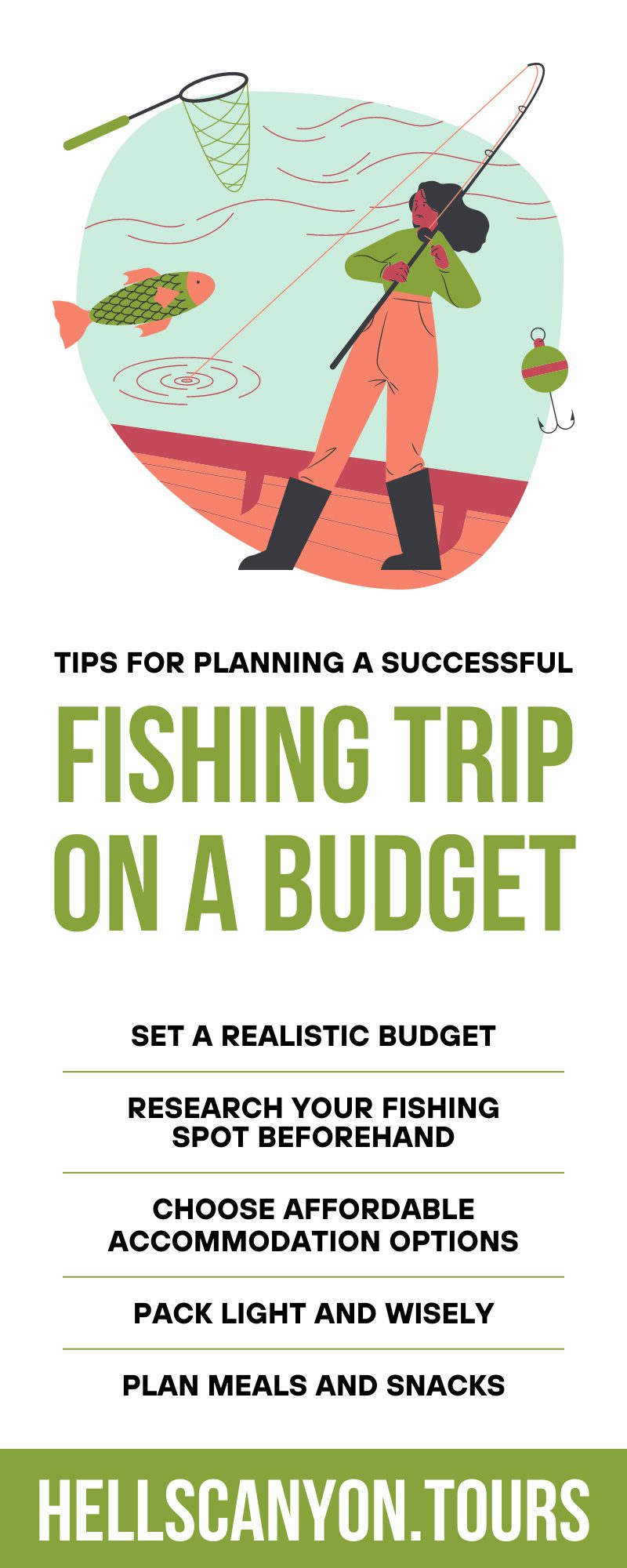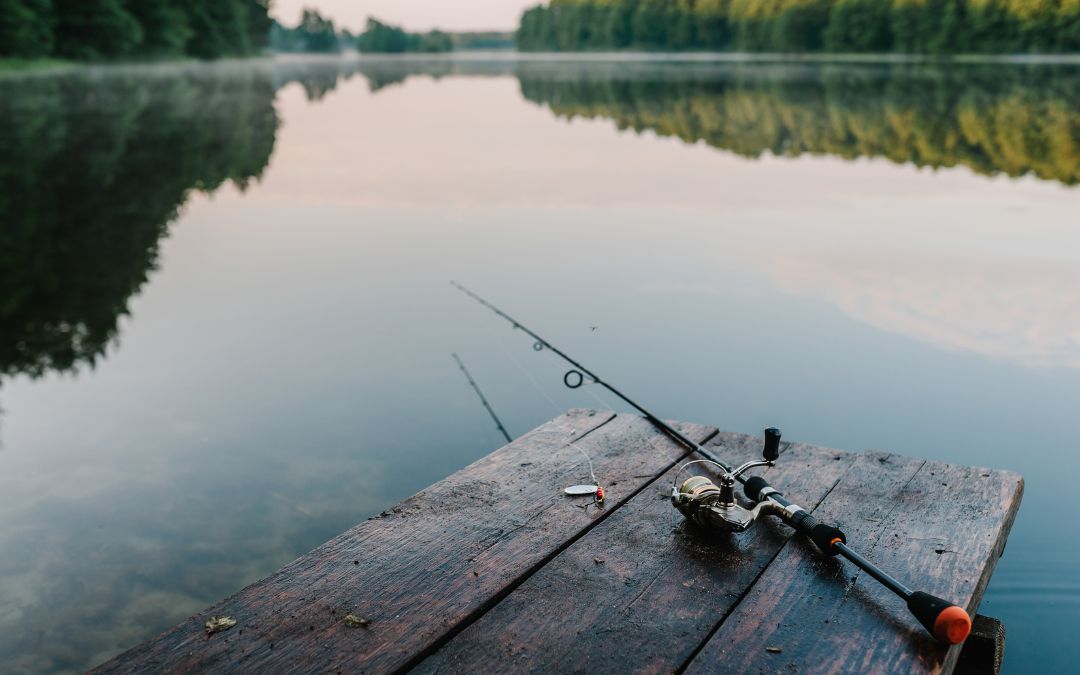If the call of the open water and the hopeful cast of a line beckons to you, then you know that fishing isn’t just a hobby; it’s a way of life. However, the idea of fishing trips often evokes images of expansive lakes and luxury boats, which can seem far-fetched for a budget-minded angler. But here’s the catch—you don’t have to break the bank to have a memorable fishing adventure. With the right planning and a bit of flexibility, you can reel in the experience of a lifetime without sinking your wallet. Here are nine tips for planning a successful fishing trip on a budget to help you make the most of your efforts.
Set a Realistic Budget
If your goal is to stick to a budget, your first step should be to get a realistic look at what you can afford. Your budget will dictate much of your planning, so establishing this upfront is crucial. Determine what you can comfortably afford to spend on accommodations, travel, gear, and incidentals, such as permits and meals. Remember to include a buffer for unexpected expenses—it’s better to have too much money left over than not enough to cover emergency costs.
A budget doesn’t have to be confining; it’s the framework for making strategic choices that allow you to enjoy a fulfilling trip without overspending.
Research Your Fishing Spot Beforehand
Any good fishing trip begins with thorough research. Start by selecting a fishing destination that matches your interests and fishing style. In Hells Canyon, you’ll find the Snake River teeming with a variety of fish species, including trout, sturgeon, and bass. Consult local fishing reports and forums to get an accurate picture of the conditions and what’s biting. Monitoring the weather is also essential, as seasonal changes can drastically affect the fishing experience.
Additionally, familiarize yourself with the waterways. Know the depths, any natural structures where fish might congregate, and the potential feeding patterns of the local fish population.
Choose Affordable Accommodation Options
Accommodation can eat into your budget, but it doesn’t have to. For a fishing trip in Hells Canyon, consider camping at one of the many beautiful sites along the Snake River. Camping keeps costs down and immerses you fully in the angling experience. If you prefer a roof over your head, look for budget-friendly lodges or cabins in the local area.
Be flexible with your dates if possible—mid-week rates are often lower than weekend stays. Additionally, some lodgings offer special packages for anglers, complete with access to private fishing spots.
Pack Light and Wisely
Overpacking is a common pitfall and can lead to extra baggage fees or frustration when lugging around unnecessary gear. Create a comprehensive packing list that includes essentials such as a fishing rod and tackle, appropriate clothing, sunscreen, and a first-aid kit. Consider the climate and any specific weather conditions you might encounter.
Opt for versatile, multi-use items to save space and weigh the pros and cons of each piece of gear. Lightweight, high-quality equipment can be a lifesaver, allowing you to travel to different fishing spots more comfortably and cover more water with ease.
Plan Meals and Snacks
Eating out every meal can quickly add up, so plan your meals in advance. Pack non-perishable snacks, such as trail mix or granola bars, to keep you fueled throughout the day. If you’re camping, prepare easy, satisfying meals ahead of time that require minimal preparation at the site. Embrace the simplicity of camping cuisine—meals don’t have to be gourmet to be delicious.
For fresh, hearty meals, consider a cooler with the day’s catch (provided it’s within fishing regulations) or find a restaurant or food market within your spending limits. Remember that some of the best dining experiences are the ones you create for yourself in the great outdoors.
Research Fishing Regulations and Licenses
Another crucial tip for planning a successful fishing trip on a budget is to understand the area’s fishing rules and license requirements beforehand. Ensure you’re in good legal standing by acquiring the necessary fishing licenses and being informed about the regulations for the specific area you plan to fish. Each location can have different rules concerning restricted areas, catch limits, and species-specific guidelines.
Fines for not having a proper license or breaking fishing laws can be steep—not to mention the impact on local conservation efforts. Be a responsible angler and do your part to protect the fishing environment and your wallet.
Sign Up for a Guided Fishing Tour
A guided fishing tour is a smart investment for both novice and experienced anglers. The professional guides at River Adventure’s Hells Canyon fishing trips have extensive knowledge of the local waters, fish behaviors, and techniques to help you maximize your chances of success. They can also provide all necessary equipment and tackle, which can save you money on buying or renting gear.
Guided tours are available in various lengths and prices. Consider booking a half-day excursion to save on costs and still reap the benefits of expert guidance. You can also inquire about group rates if you’re fishing with friends or family.
Do Free or Low-Cost Activities
Fishing might be the focal point of your trip, but mixing in other activities can provide a well-rounded experience without inflating your expenses. Hells Canyon offers opportunities for wildlife viewing, hiking, and photography, all of which come at no additional cost (besides any relevant permits).
These activities add value to your trip and offer a chance to unwind and appreciate the surrounding beauty. They can also serve as fun alternatives if the fish aren’t biting or after you’ve reached your catch limit.
Practice Leave No Trace Principles
Leaving the outdoors as you found it is a core tenet of responsible outdoor recreation. Throw out all your trash, dispose of waste properly, and be mindful of the impact you have on the environment during your fishing trip. Leave No Trace principles ensure that the area remains pristine for the next wave of anglers and wildlife. It also helps you avoid costly fees for leaving litter and other damaging substances behind.
Respecting the surroundings is an investment in future fishing experiences. The cleaner and healthier the ecosystem, the more sustainable and rewarding the fishing opportunities will be in the long run.
By applying these nine practical tips, you can prepare for a fishing trip that’s both fulfilling and budget-friendly. Hells Canyon in Idaho is the perfect backdrop for such an escapade, providing a range of fishing experiences for anglers of all kinds. At River Adventures, we want to give you and your family an experience you won’t forget. Whether you’re looking to book one of our fishing tours or a more relaxing, scenic river tour, we’ll do the work so that you can make the most of the adventure.


Recent Comments